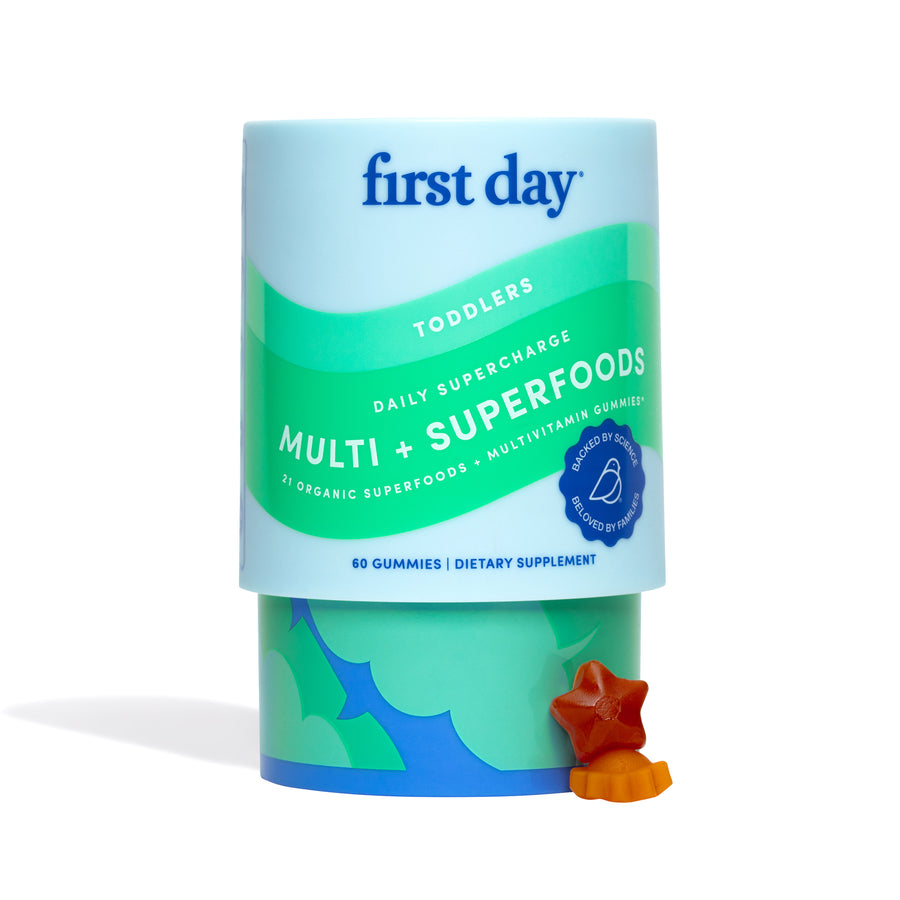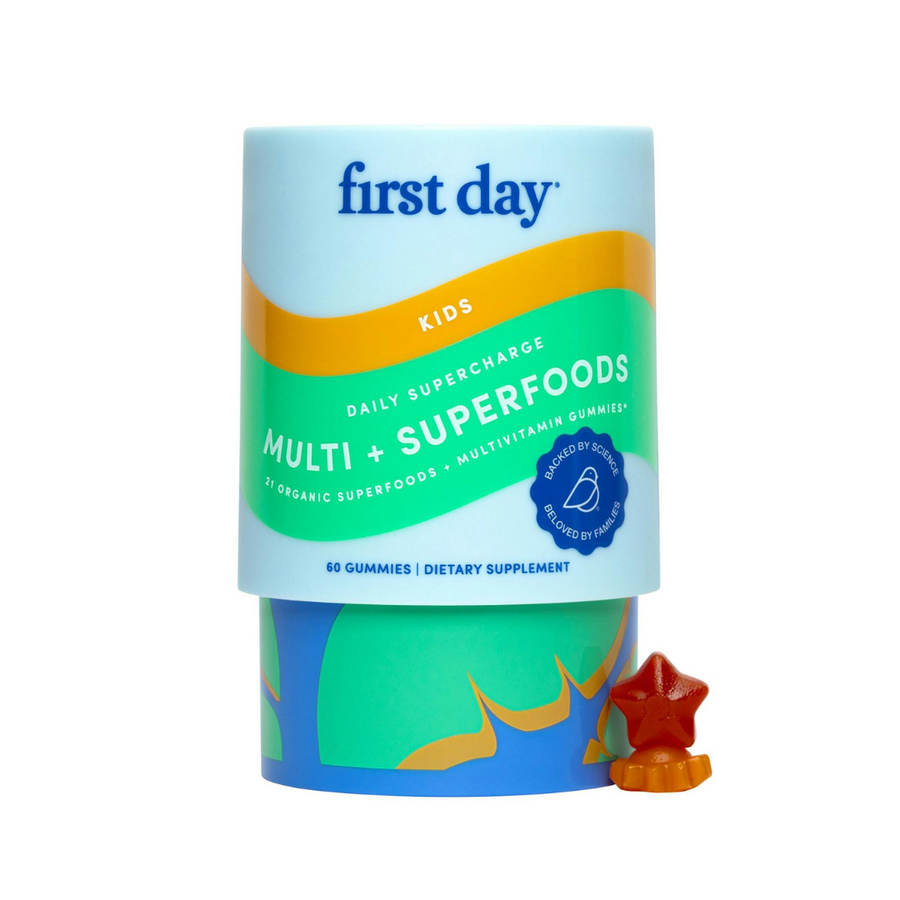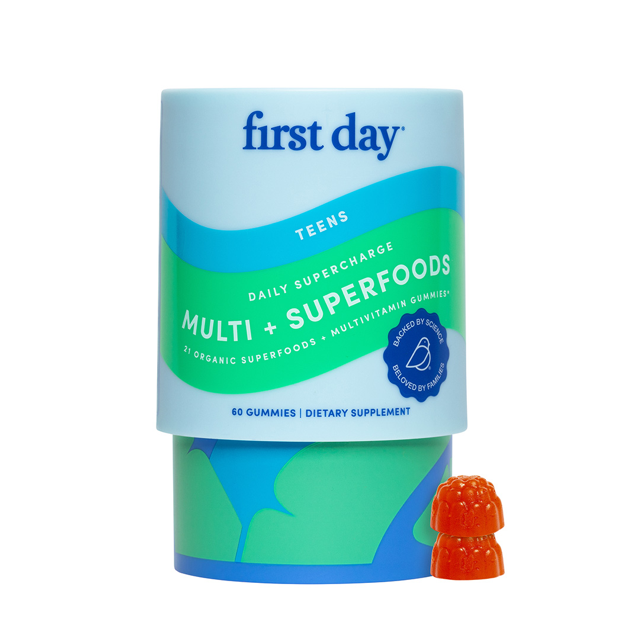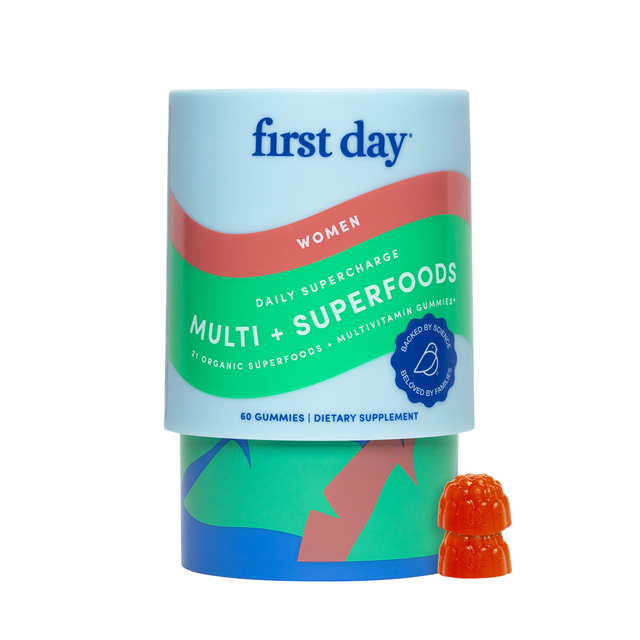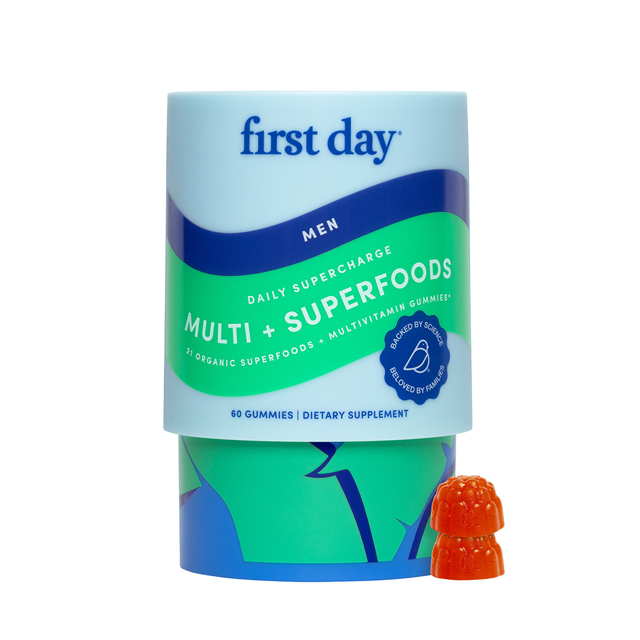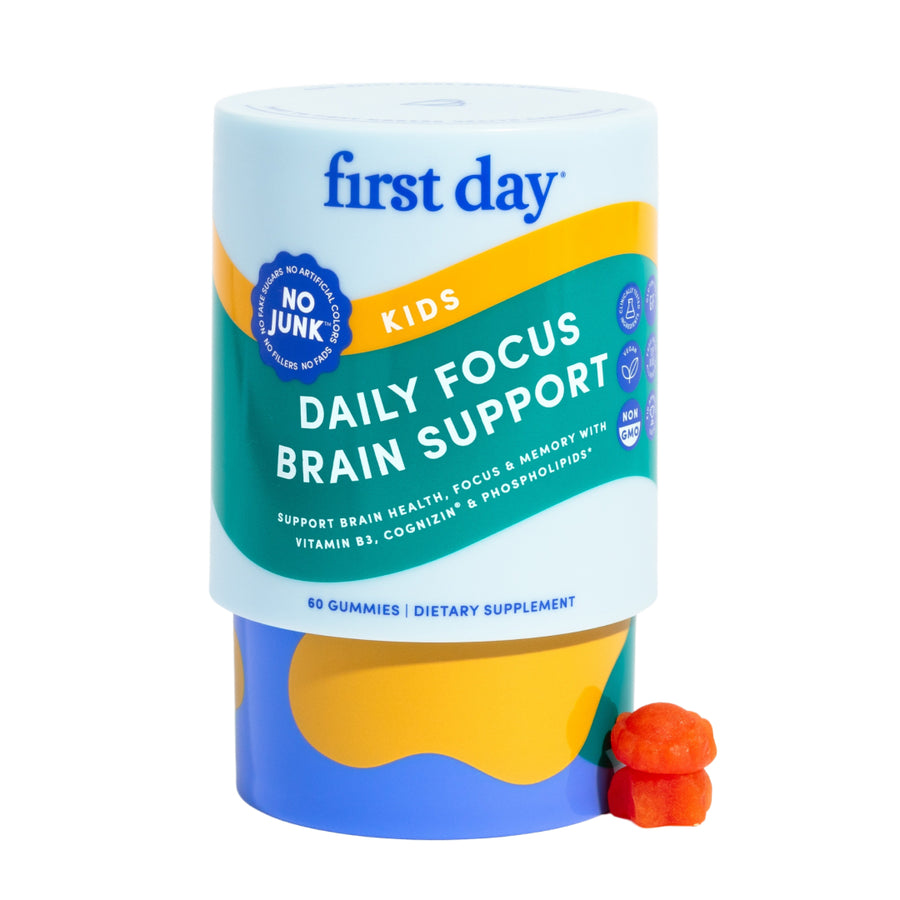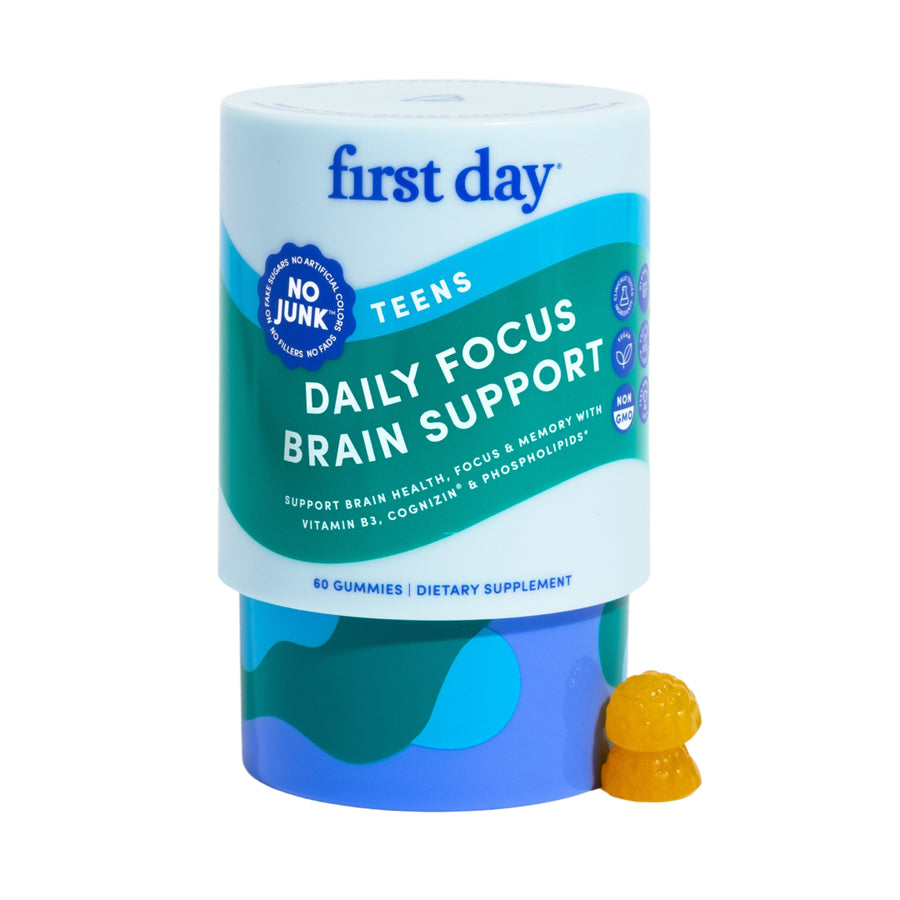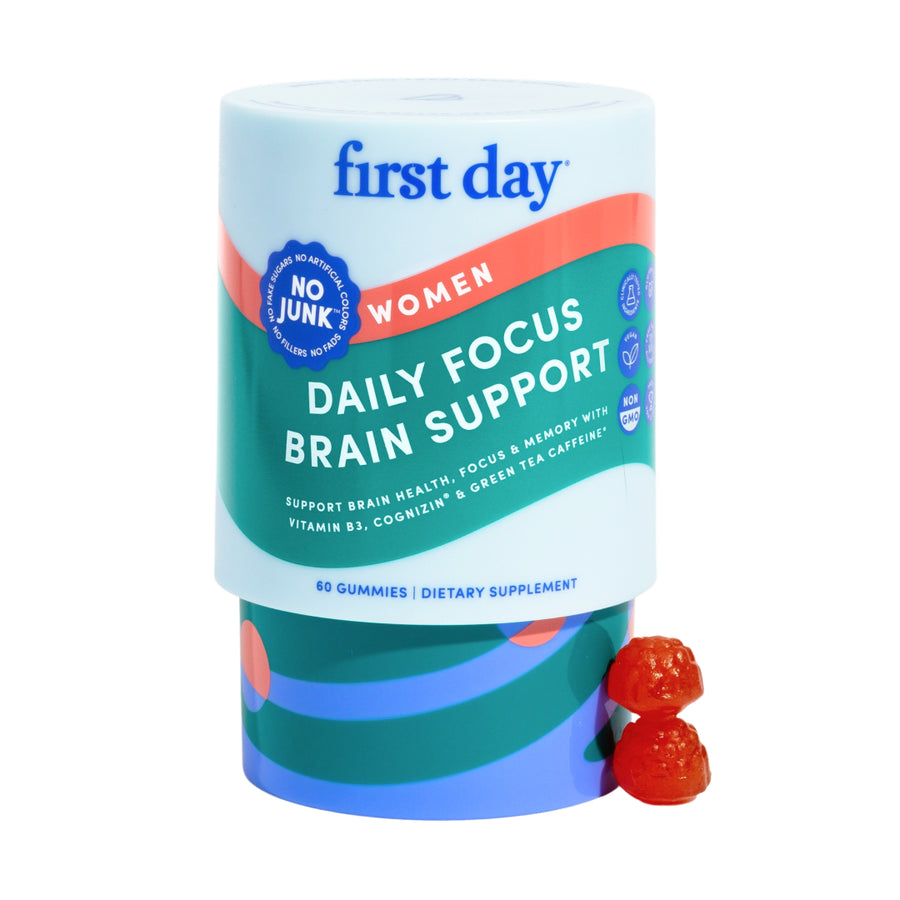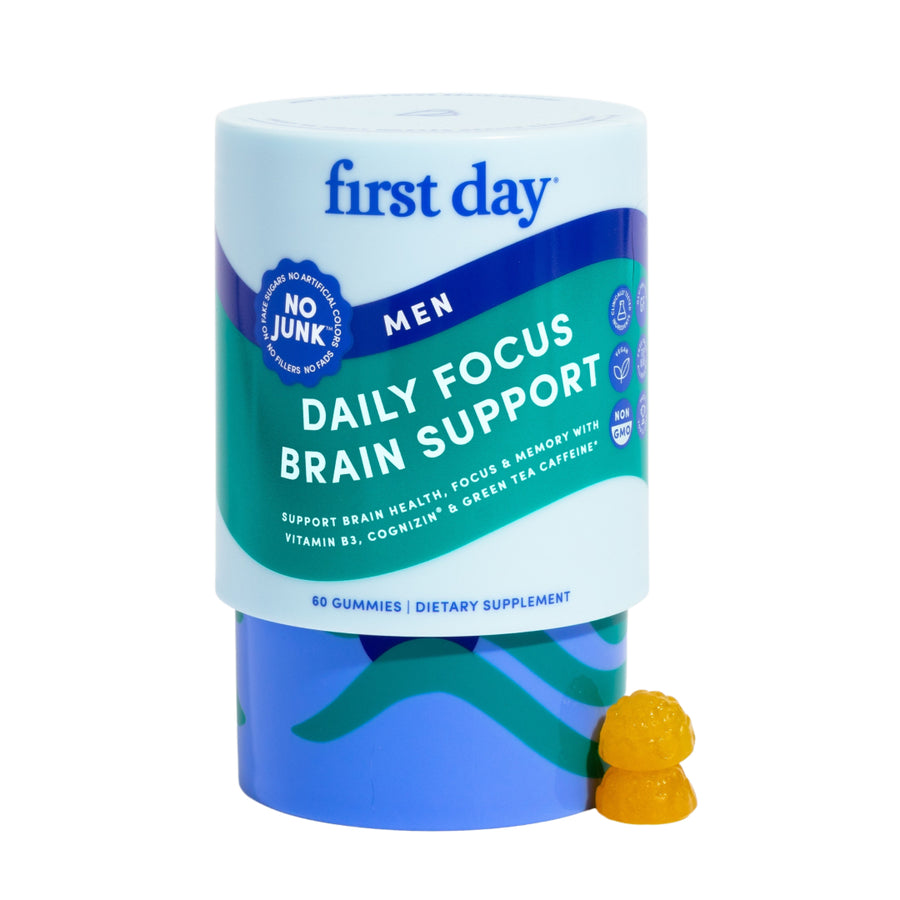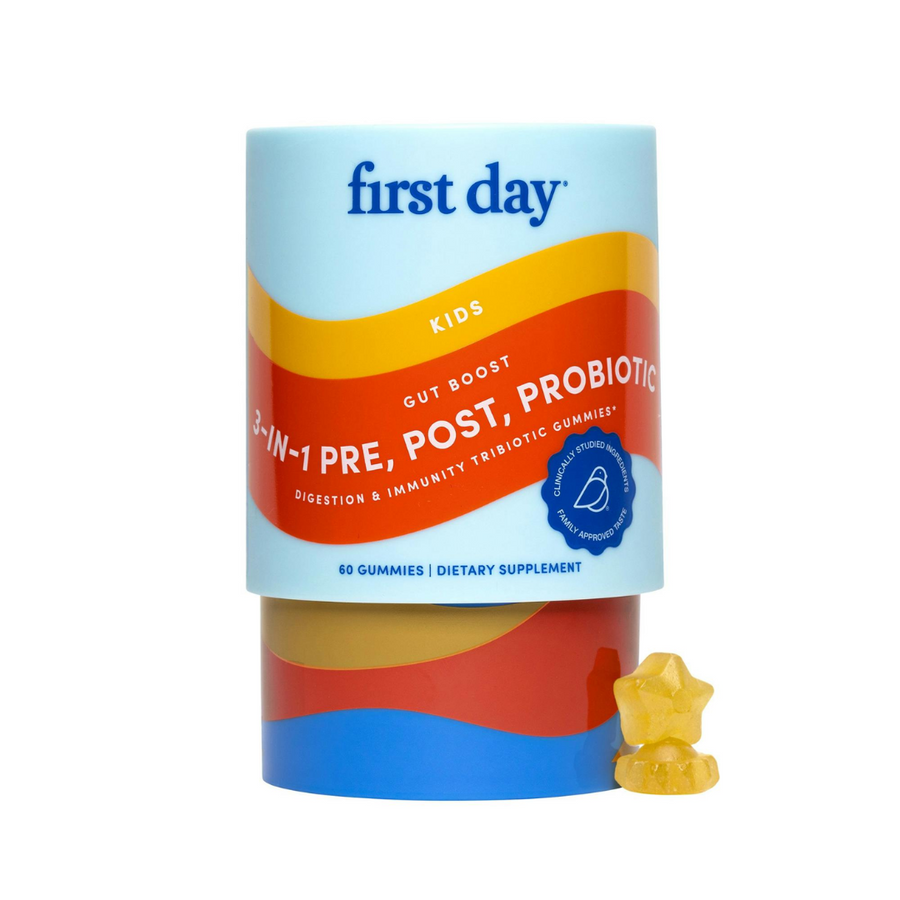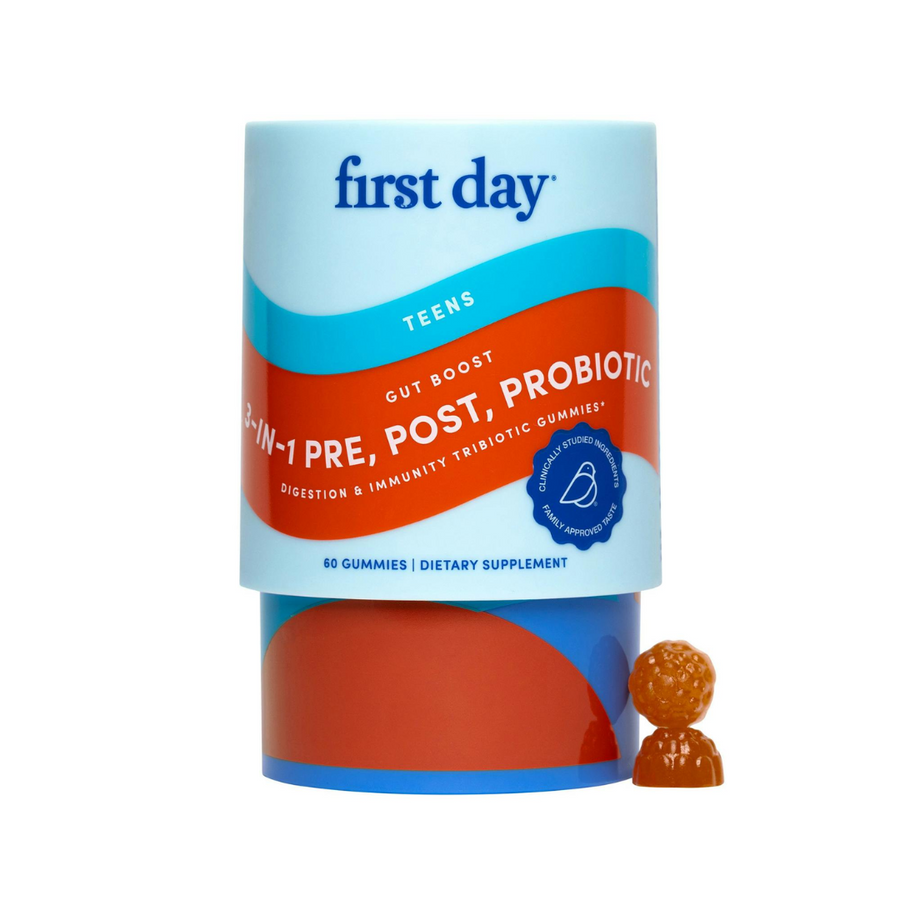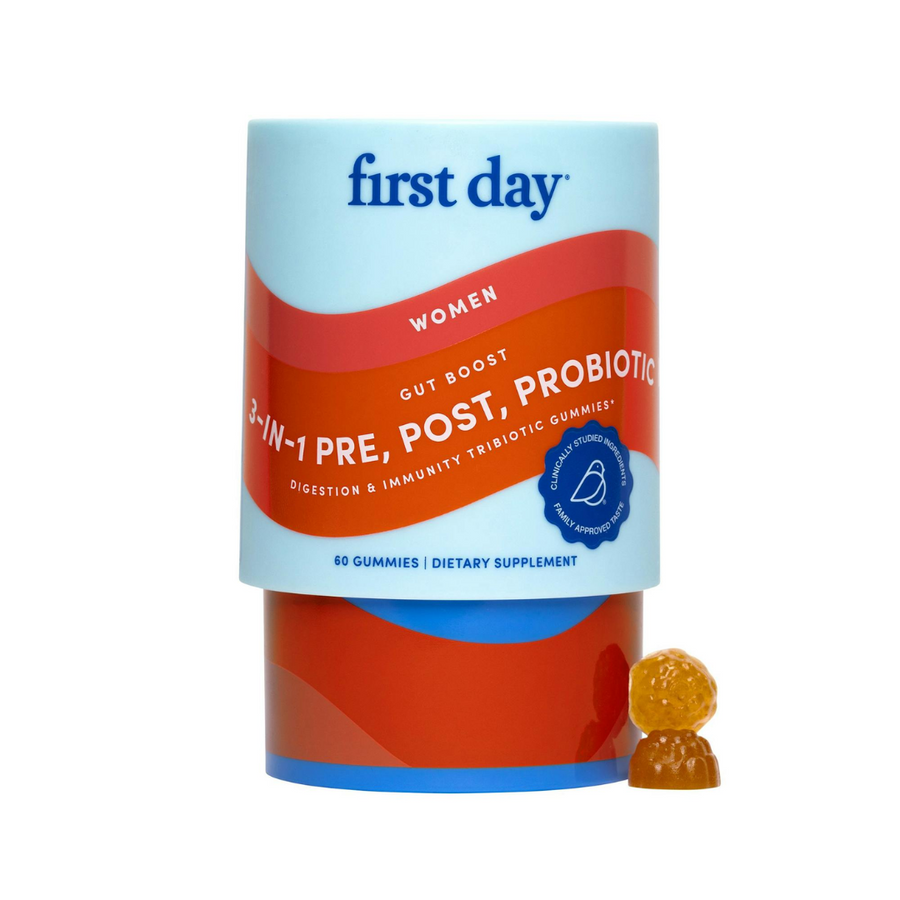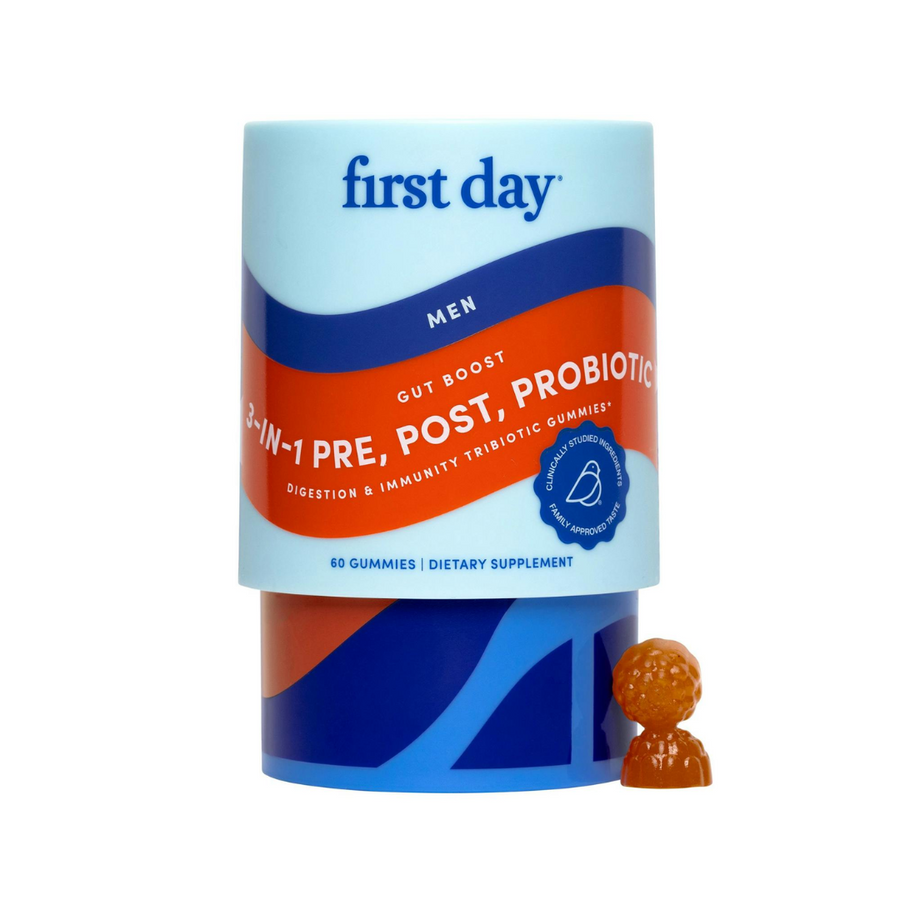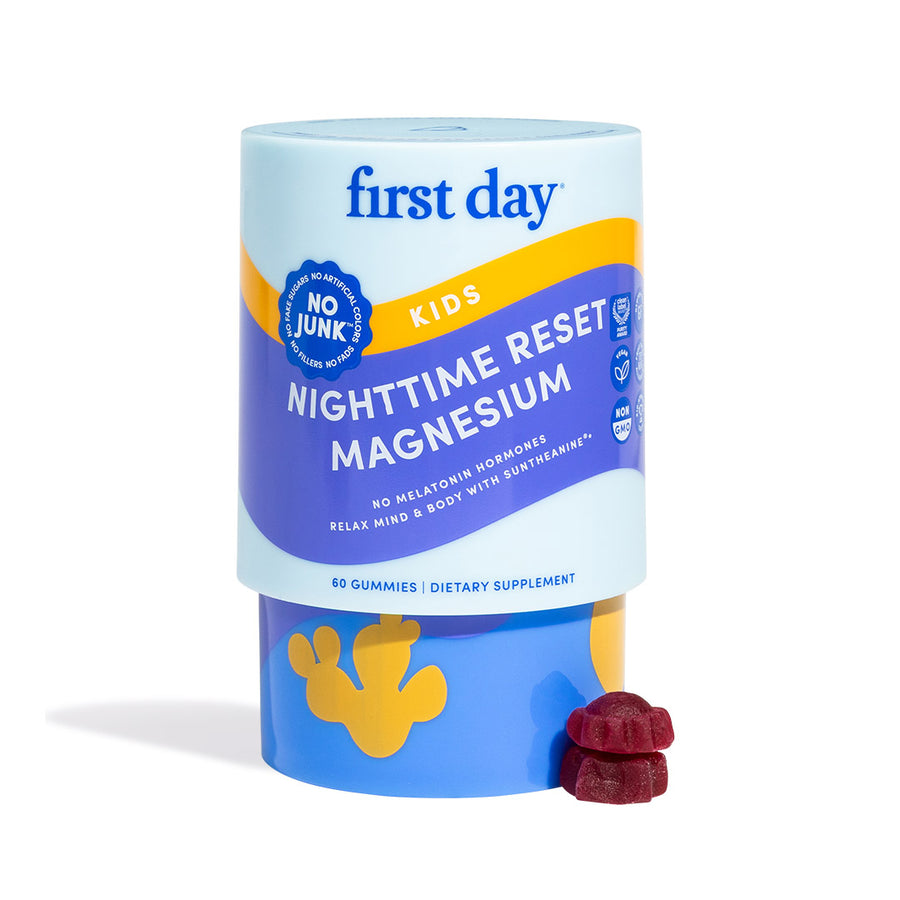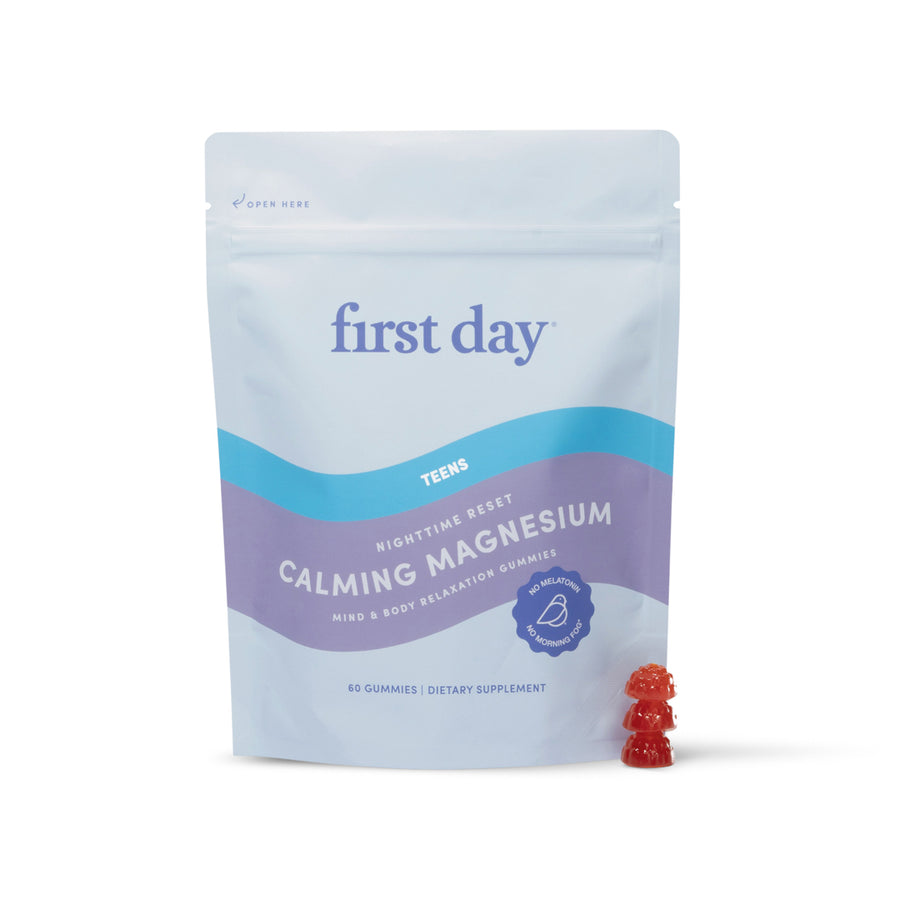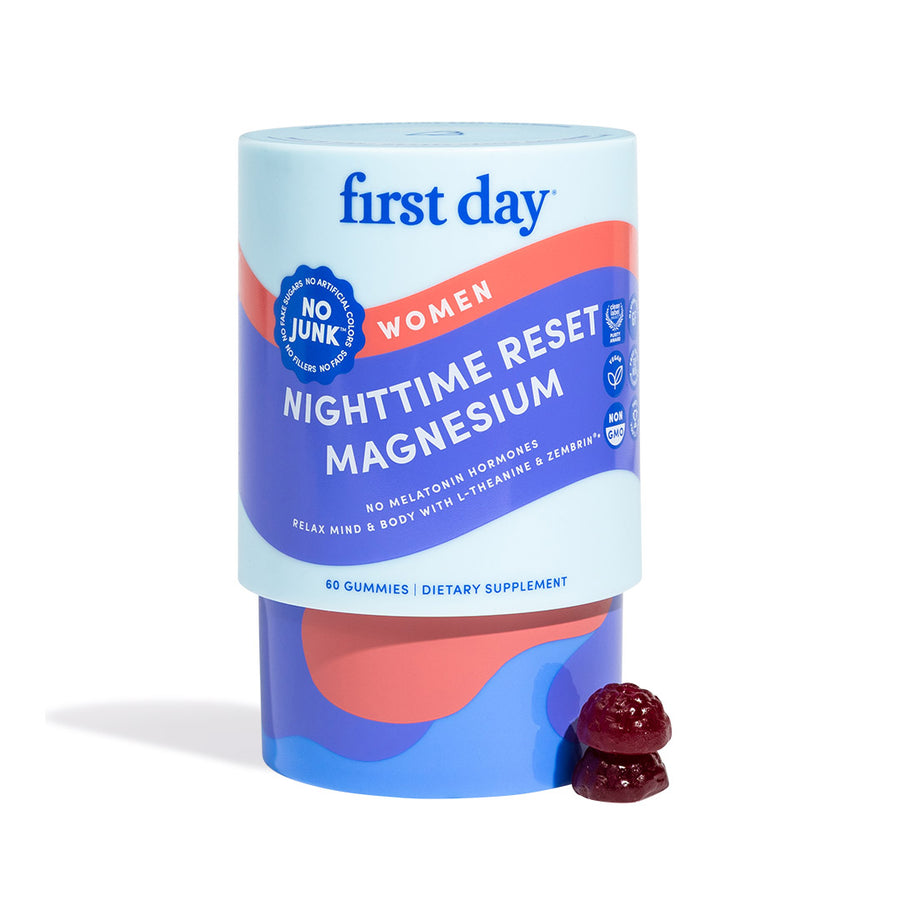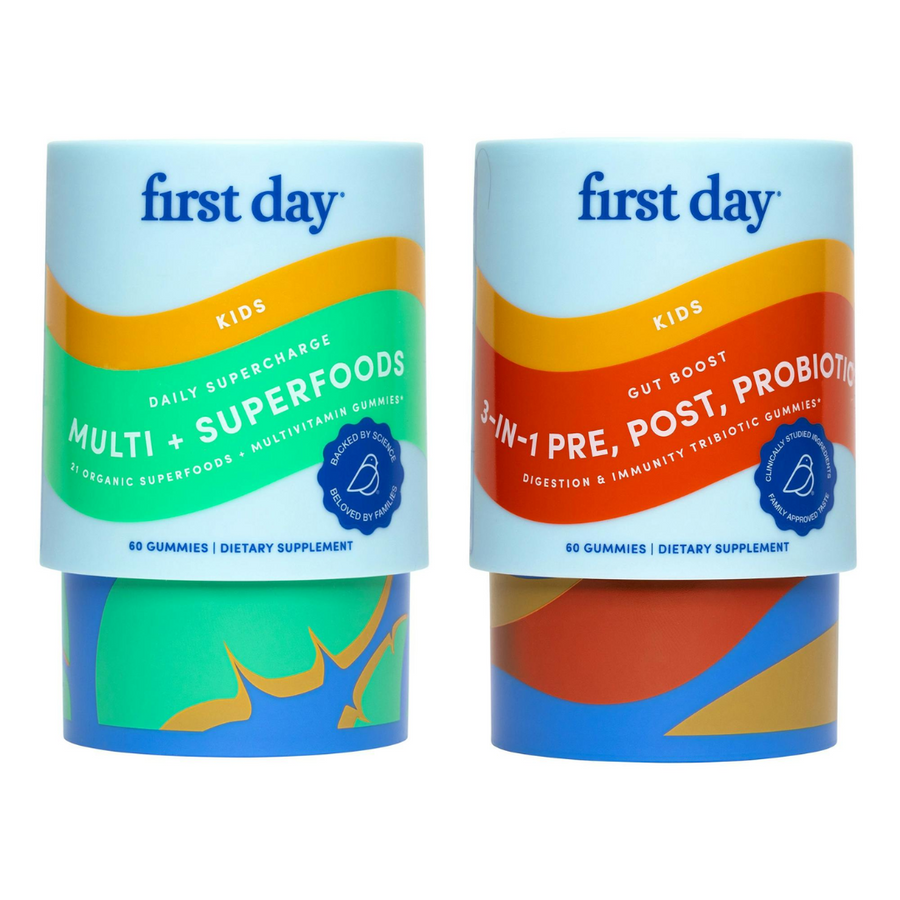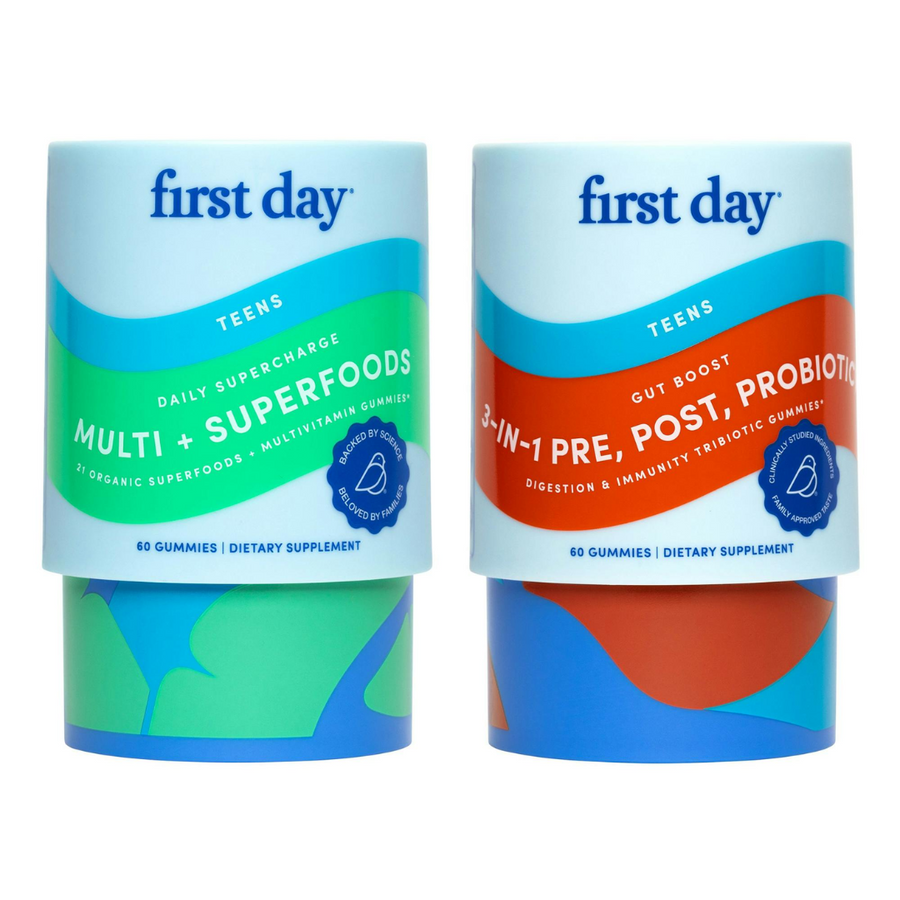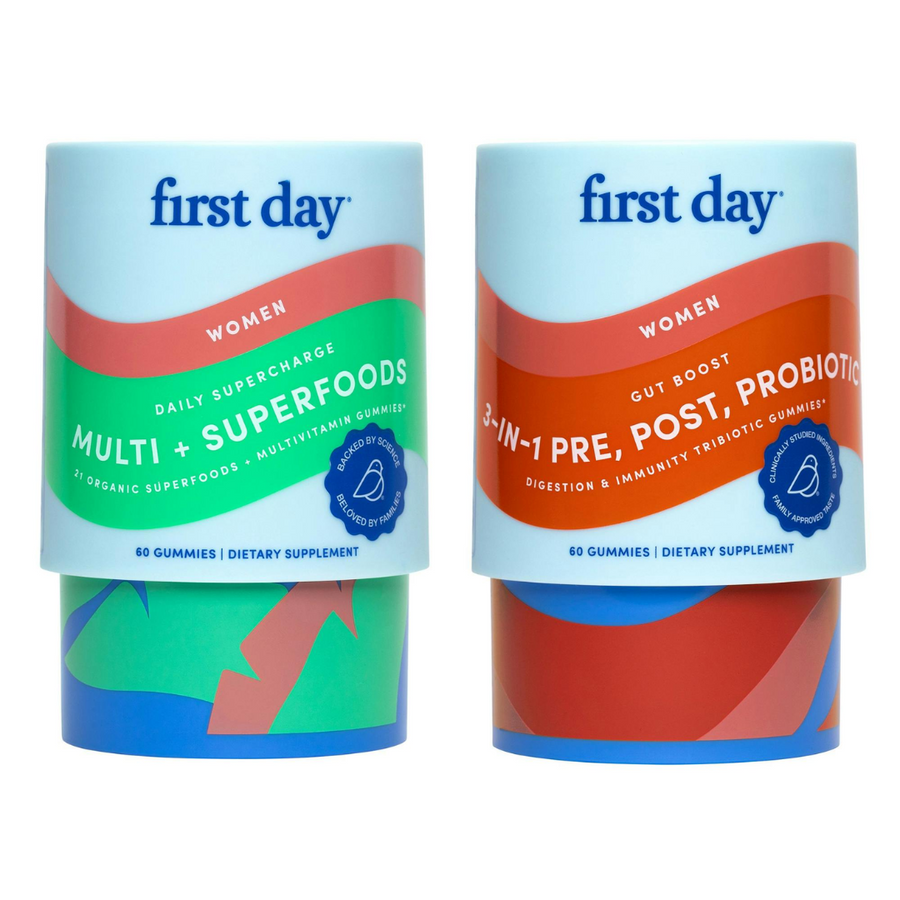We all know the necessity of taking multivitamins, right? They help fill those pesky nutritional gaps, boost our mood, and give our immune system a fighting chance against colds. But here's a question you might not have asked yourself: when is the best time to take multivitamins? Seriously, when is the best time to take multivitamins? Believe it or not, the timing can make a big difference in how effective they are - and not everyone knows this. So, let us at First Day help you out! In this blog post, we will dive into the question, "When is the best time to take multivitamins?" so you can get the most out of your daily multivitamins.
Let's Get to Know Your Multis!
Life is busy, and it's not always easy to maintain a perfectly balanced diet every single day. That's where multivitamins or dietary supplements come in. Multivitamins, often called "multis," are like the Swiss Army knife of supplements—compact, versatile, and packed with essential nutrients your body craves. Whether it's vitamins, minerals, or other beneficial compounds, your trusty multi is there to help fill in nutritional gaps you might miss from your diet.
Each vitamin and mineral plays a crucial role in ensuring you perform at your best. They provide a solid nutritional foundation, so it's no surprise that many people add them to their daily routine.
Need more energy? Bam, here's some vitamin B12. Want stronger bones? Calcium and vitamin D have got your back. Feeling under the weather? Vitamin C to the rescue.
Overall, multivitamins ensure you're not missing out on key nutrients that your body needs to function properly.
What Affects The Prime Time For Your Vitamin Game?
But the timing is not all black and white, there's a little more to it. The best time to take vitamin and mineral supplements can vary depending on factors like:
Your Unique Nutritional Blueprint
Everyone's body is a bit different, which means your nutritional needs and the best time to take your vitamins can vary. Think of it like this: each of us has a unique nutritional blueprint, that is, our bodies require specific nutrients at different times and react to the nutrients differently. So, while your friend might take their multis in the morning and feel great, you may benefit more from taking them at night. This is why it's essential to listen to your body and figure out what works best for you.
Age Matters Big Time
As we get older, our nutritional needs change, and so might be the best time to take our vitamins. Let's break it down:
- Kids and Teens: These little dynamos are growing fast and need different nutrients than adults. A kids’ multivitamin or a teens’ multivitamin with Vitamin D and calcium is key for bone growth. Taking it with breakfast or lunch fits right into their routine and gives them an extra boost for school.
- Adults: Busy schedules, new jobs, and maybe starting a family? You're likely burning the candle at both ends. Taking your men's multivitamin or women's multivitamin with breakfast can jumpstart your day and keep your energy steady.
- Elderly: Appetite and digestion can change as we age. Taking multivitamins with lunch or dinner might be gentler on the stomach than with a light breakfast. Look for multivitamins that can support heart health such as magnesium, and have higher doses of D since it's harder to absorb as we age.
Keep these tips in mind to get the most out of your vitamins at every stage of life!
Here at First Day, we’ve got a range of multivitamins for kids, teens, moms, and dads—basically, the whole fam! Our yummy gummy multivitamins are crafted with a blend of fruits and veggies, and absolutely zero artificial coloring or artificial sweeteners. So, you can feel good knowing everyone’s getting the best!
Ready to give your family the boost they need?
Grab Your First Day Gummy Multivitamins & Save 15% OFF Today!
Lifestyle Vibes
Your lifestyle plays a big role in deciding when you should pop that multi. Are you a gym enthusiast, a night owl, or a busy parent chasing after kiddos? Let’s break it down:
Fitness Buffs
If you’re hitting the gym regularly, your body needs some extra nutrients to recover and rebuild. Taking your vitamin supplement after a workout, with a protein-packed meal or shake, could give you that extra edge. Take vitamin B for example, it helps convert food into energy. Perfect for your post-gym routine!
Night Owls
Can't seem to fall asleep before midnight? If you're a night owl who thrives after the sun goes down, try taking your multivitamin with your midday or evening meal. Just avoid taking them too close to bedtime, especially if they contain energy-boosting B vitamins – the last thing you need is to be wired when you’re trying to wind down.
Busy Bees
Parents, on-the-go professionals, and generally busy folks, listen up! Your hectic schedule might make it challenging to remember to take your vitamins. Pairing them with a consistent meal like breakfast or lunch can help create a routine. If mornings are utter chaos (hello, school runs and Zoom meetings), consider taking your multi with lunch to ensure you don’t miss out.
Chill Weekenders
For those who have a more relaxed laid-back lifestyle or enjoy calm weekend brunches, you might find that taking your multivitamins in the morning with your hearty brunch is a perfect fit. It's a great way to start the day and ensure you have the nutrients you need to keep that mellow vibe going.
The Best Time to Pop Each Vitamins
But each type of vitamin affects when is the best time to take multivitamins. For example:
Water-Soluble Vitamins
Water-soluble vitamins, like B vitamins and Vitamin C, don't stick around in the body for long, so taking them at the right time is crucial to maximize their benefits. Since these vitamins are best absorbed on an empty stomach, taking them first thing in the morning, perhaps with a glass of water, sets you up perfectly for the day ahead. But if your mornings are a whirlwind, don't stress—taking them between meals works too. Just avoid pairing them with caffeine, which can cause you to pass them out in urine.
Fat-Soluble Vitamins
Fat-soluble vitamins like A, D, E, and K are best when taken with fats for optimal absorption. So, pair them with meals that have healthy fats—think avocados, nuts, or full-fat Greek yogurt. Timing can be flexible, as long as you're consistent. Breakfast, lunch, or dinner—whatever meal you reliably consume fats with—can be your best time to take vitamins. For those prone to forgetting, choosing a consistent dietary fat is a given can simplify your routine.
Mineral Companions
Some minerals, like iron and calcium, don't play nicely together as they can compete for absorption. Consider taking your iron supplement in the morning with vitamin C-rich foods (hello, OJ!) to boost absorption, and leave calcium supplements, essential for bone health, for later in the day, perhaps in the evening when you have your dinner.
Multivitamins
When it comes to vitamin supplements, they're a bit of a mixed bag, containing both water-soluble vitamins and fat-soluble vitamins. The golden rule is to take them with a meal to cover all bases, ideally one with fats. Consistency is key, so align it with a meal you never skip. Most people find lunch or dinner works wonders to keep everything balanced and avoid the risk of mid-day dips in energy.
First Day is here to make your gummy multivitamin routine a simple and delicious treat. By only popping two tasty gummies a day, you and your family are getting the essential nutrients that are important for overall health and well-being.
Grab Your First Day Gummy Multivitamins & Save 15% OFF Today!
When's the Best Time to Take Your Vitamins for Maximum Wow Factor?
Timing your vitamins just right can make a huge difference in how you feel throughout the day.
Supercharging Your Mornings
Feeling groggy in the AM? Kickstart your day by taking vitamins that boost energy. B-complex vitamins are great companions for your breakfast, ideally with a glass of water. These vitamins don't stick around your body for long, so taking them on an empty stomach in the morning gives you the perfect head start. Plus, they energize you without the jitters of caffeine.
Daytime De-Stressors
Balancing work, family, and life can be a juggling act. Throw in some stress-managing vitamins like magnesium with your lunch or midday snack. They help regulate your mood and keep those stress levels in check, allowing you to sail smoothly through the day.
Wind Down Wonders
As the day winds down, it's time to think about relaxation and quality sleep. Evening vitamins like Vitamin D can promote calmness and a better mood. Pair these with a dinner that includes healthy fats to enhance absorption and drift off into a peaceful slumber.
So, When Is The Best Time to Take Multivitamins?
You've probably guessed it by now. The best time to take your multivitamins depends on your lifestyle, the type of vitamins you're taking, and how they affect your body. But regardless of when you choose to pop those gummies or pills, consistency is key. Finding a time that works for you and sticking to it will help maximize the benefits and make it an effortless part of your daily routine.
Don't forget to grab your First Day Gummy Multivitamins today and save 15% off with our subscribe and save option! With a delicious flavor and organic sweeteners, getting all the essential nutrients has never been so tasty.
Grab Your First Day Gummy Multivitamins & Save 15% OFF Today!
References:
O’Leary, F., & Samman, S. (2010). Vitamin B12 in Health and Disease. Nutrients, 2(3), 299–316. https://doi.org/10.3390/nu2030299
Calcium and vitamin D: Important for bone health. (2023, May 5). National Institute of Arthritis and Musculoskeletal and Skin Diseases. https://www.niams.nih.gov/health-topics/calcium-and-vitamin-d-important-bone-health
Moore, A., & Khanna, D. (2023). The Role of Vitamin C in Human Immunity and Its Treatment Potential Against COVID-19: A Review Article. Cureus, 15(1). https://doi.org/10.7759/cureus.33740
National Institutes of Health. (2022). Office of Dietary Supplements - Magnesium. National Institutes of Health. https://ods.od.nih.gov/factsheets/Magnesium-HealthProfessional/
Boucher, B. J. (2012). The Problems of Vitamin D Insufficiency in Older People. Aging and Disease, 3(4), 313–329. https://www.ncbi.nlm.nih.gov/pmc/articles/PMC3501367/#:~:text=Vitamin%20D%20is%20provided%20by
Tardy, A.-L., Pouteau, E., Marquez, D., Yilmaz, C., & Scholey, A. (2020). Vitamins and minerals for energy, fatigue and cognition: A narrative review of the biochemical and clinical evidence. Nutrients, 12(1), 228. https://doi.org/10.3390/nu12010228
National Cancer Institute. (2019). NCI Dictionary of Cancer Terms. National Cancer Institute; Cancer.gov. https://www.cancer.gov/publications/dictionaries/cancer-terms/def/water-soluble-vitamin
Ulvik, A., Vollset, S. E., Hoff, G., & Ueland, P. M. (2008). Coffee consumption and circulating B-vitamins in healthy middle-aged men and women. Clinical Chemistry, 54(9), 1489–1496. https://doi.org/10.1373/clinchem.2008.103465
Albahrani, A. A., & Greaves, R. F. (2016). Fat-Soluble Vitamins: Clinical Indications and Current Challenges for Chromatographic Measurement. The Clinical Biochemist. Reviews, 37(1), 27–47. https://www.ncbi.nlm.nih.gov/pmc/articles/PMC4810759/
Sr, L., & Jd, C. (1980). Interaction of Vitamin C and Iron. Annals of the New York Academy of Sciences. https://pubmed.ncbi.nlm.nih.gov/6940487/
Vannucci, L., Fossi, C., Quattrini, S., Guasti, L., Pampaloni, B., Gronchi, G., Giusti, F., Romagnoli, C., Cianferotti, L., Marcucci, G., & Brandi, M. L. (2018). Calcium Intake in Bone Health: A Focus on Calcium-Rich Mineral Waters. Nutrients, 10(12), 1930. https://doi.org/10.3390/nu10121930
Tardy, A.-L., Pouteau, E., Marquez, D., Yilmaz, C., & Scholey, A. (2020). Vitamins and minerals for energy, fatigue and cognition: A narrative review of the biochemical and clinical evidence. Nutrients, 12(1), 228. https://doi.org/10.3390/nu12010228
Pickering, G., Mazur, A., Trousselard, M., Bienkowski, P., Yaltsewa, N., Amessou, M., Noah, L., & Pouteau, E. (2020). Magnesium status and stress: The vicious circle concept revisited. Nutrients, 12(12), 3672. https://doi.org/10.3390/nu12123672

